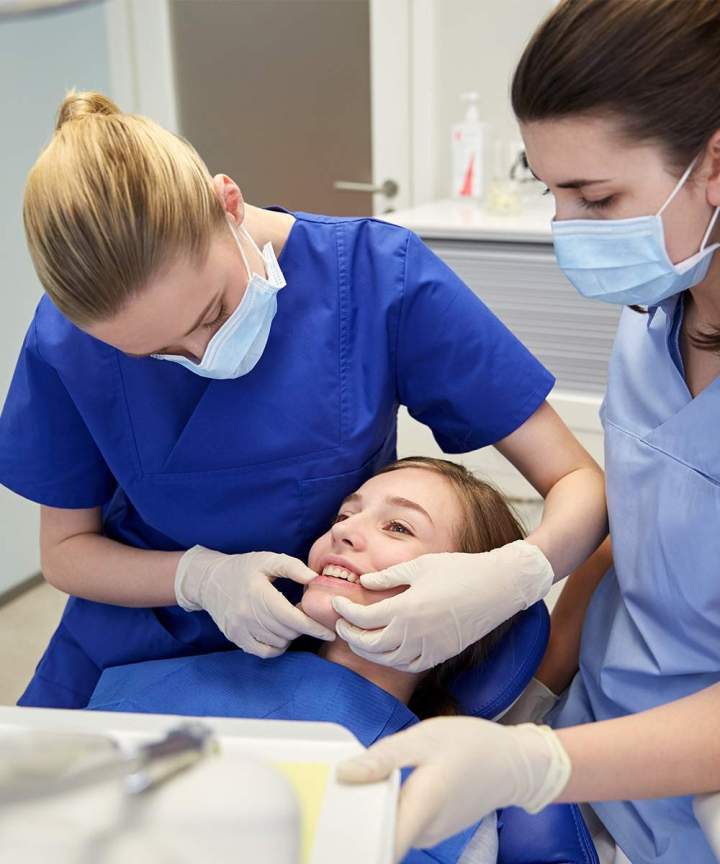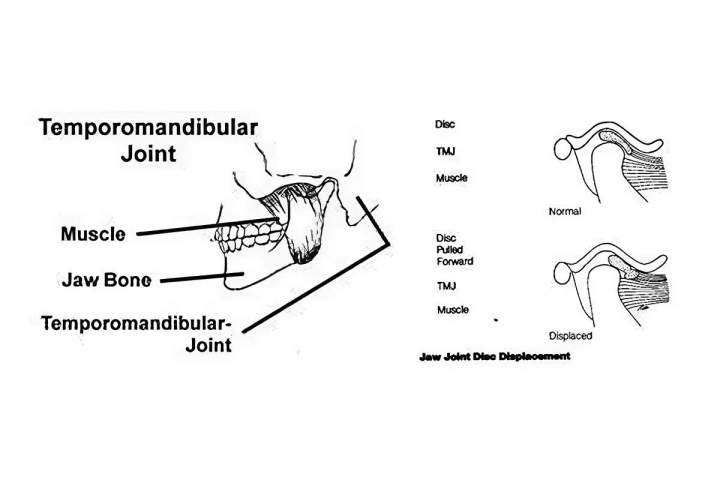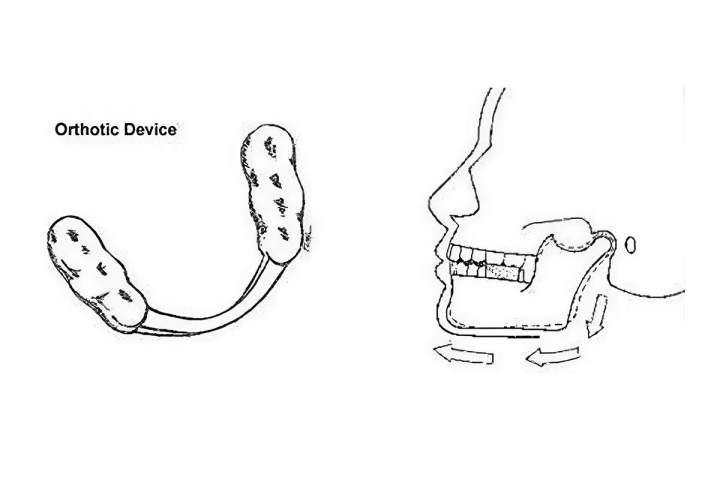TMJ Dental Health – Toronto
"TMJ" and Dental Health.
By: American Academy of Craniofacial Pain (AACP).
TMJ Dysfunction is a popular term to describe a disorder of the jaw joints or the muscles that control the joints. Various terms are used to describe this disorder. In this article, we will use the dental term, "Craniomandibular Dysfunction." Symptoms masquerade as a multitude of other problems, such as sinus headaches, migraines, neck and shoulder stiffness, and earaches. Such symptoms may relate to your bite and how they can be successfully treated by a dentist who has special education in managing these disorders.
Craniomandibular Dysfunction
is a dental term which describes a collection of symptoms that result when the chewing muscles and jaw joints do not work together correctly. "TMJ" is a popular term commonly used to describe the same group of symptoms. TMJ stands for Temporomandibular Joints. These are the two joints that connect your jaw to your skull. When these joints are out of place, they can cause many problems, such as:
- Clicking or popping of the jaw joints
- Pain in or around the jaw joints
- Locking or limited opening of your mouth
Muscle spasm often accompanies displaced jaw joints. Because the nerves and muscles are so complex in this area, when these muscles are in spasm**,** the problems can be far-reaching. People suffer from symptoms they would never think to associate with their bite, such as:
- Headaches
- Pain behind the eyes
- Dizziness
- Earaches or ringing in the ears
- Clenching or grinding of the teeth
- Neck, shoulder, or back pain
- Numbness or tingling in the fingers
The primary problem can be in the joints themselves, the muscles of the face and jaw, or a combination of these. The term Craniomandibular Dysfunction (cranio = head; mandibular = jaw) is a more descriptive term because it refers to problems involving both the jaw joints themselves and the muscles of the face and head.
Because the symptoms masquerade as so many other conditions, many people travel from doctor to doctor in search of a cure. It is estimated that as many as 44 million Americans suffer from one or more of these symptoms.
Many never think to seek a dentist for help.

What Causes Craniomandibular Dysfunction?
The structures that make it possible to open and close your mouth include the bones, joints, and muscles. These are very specialized and must work together whenever you chew, speak, or swallow. Your teeth are inserted into your jaw bone. At the other end of your jaw bone are the temporomandibular joints. These joints attach your jaw to your skull. Muscles attach to both the bones and joints and allow them to move. Any problem that prevents the complex system of muscles, bones, and joints from working together in harmony may result in Craniomandibular Dysfunction.
A "Bad Bite"
There are various ways this system can be disrupted, such as accidents involving a blow to the face or whiplash. Yet the most common cause of Craniomandibular Dysfunction relates to your teeth and your bite. If your bite isn't right, it can affect both the muscles and the joints. What do we mean by a "bad bite"? We mean that your upper and lower teeth do not come together in a way that provides the proper bracing support for your jaw against your skull. This might result from a missing tooth, misaligned teeth, or back teeth, which are too "short."
Muscle Spasm
Your upper and lower teeth must come together firmly each time you swallow. This happens over 2,000 times each day and night! When your bite is unstable, your muscles must work extra hard. This extra work makes them shortened and stiff. Eventually, this strain makes them feel painful. A vicious cycle begins of increased tissue damage, muscle tenderness, and pain. The pain makes you feel tense and uptight. This worsens the muscle spasm, which in turn increases the pain.

Jaw Joint Displacement
The position of your teeth can also affect the position of your jaw joints. Each jaw joint is a ball-and-socket joint. When functioning properly, the ball and socket do not actually touch because a thin disc of cartilage sits between them. The disc acts as a cushion and allows the joint to move smoothly.
Each disc is held in place and guided by muscle. If your bite is not right, the joint is pulled out of alignment. Typically, the disc is pulled forward. Since it no longer serves as a cushion, the joint itself now rubs against the bony socket and presses on pain fibers. Mild displacements cause a clicking or popping sound in the jaw joint; more severe displacements can be very painful and eventually can cause permanent damage to the joint.
An unstable bite can cause both jaw joint displacement and muscle strain and pain. Many seemingly unrelated symptoms result, which are collectively known as Craniomandibular Dysfunction. When this condition is prolonged, the body begins to compensate and adapt by involving muscles in the neck, back, and sometimes even those of the arms, fingers, pelvis, legs, and feet.

Treatment
Since the teeth, jaw joints, and muscles can all be involved, treatment for this condition varies. Typically, treatment will involve several phases. The first goal is to relieve the muscle spasm and pain. Then, your dentist must correct the way the teeth fit together. Often, a temporary device (known as an orthotic, or "splint") is worn over the teeth until the bite is stabilized.
Permanent correction may involve selective reshaping of the teeth, building crowns on the teeth, orthodontics, or a permanent appliance to place over the teeth. If the jaw joint itself is damaged, it must be specifically treated. Though infrequent, surgery is sometimes required to correct a damaged joint. Ultimately, your dentist will stabilize your bite so that the teeth, muscles, and joints all work together without strain.
The important aim of correcting your bite is to ensure optimal long-term health. If you have any of the signs or symptoms mentioned, discuss them with your dentist. Your health is your most priceless possession. It is worth the investment!
